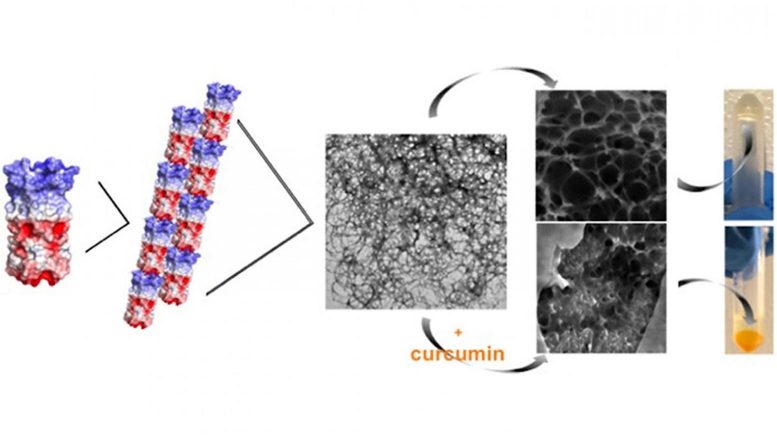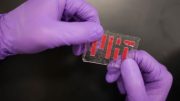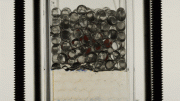
An illustration of how an engineered Q protein self-assembles to form fiber-based hydrogels at low temperature. These hydrogels have a porous microstructure that allows them to be used for drug delivery applications. Credit: NYU Tandon
NYU Tandon-led team crosses barrier needed to deliver drugs at the cellular level and to engineer tissue.
Imagine a perfectly biocompatible, protein-based drug delivery system durable enough to survive in the body for more than two weeks and capable of providing sustained medication release. An interdisciplinary research team led by Jin Kim Montclare, a professor of biomolecular and chemical engineering at the NYU Tandon School of Engineering, has created the first protein-engineered hydrogel that meets those criteria, advancing an area of biochemistry critical not only to the future of drug delivery, but tissue engineering and regenerative medicine.
Hydrogels are three-dimensional polymer networks that reversibly transition from solution to gel in response to physical or chemical stimuli, such as temperature or acidity. These polymer matrices can encapsulate cargo, such as small molecules, or provide structural scaffolding for tissue engineering applications. Montclare is the lead author of a new paper in the journal Biomacromolecules, which details the creation of a hydrogel comprised of a single protein domain that exhibits many of the same properties as synthetic hydrogels. Protein hydrogels are more biocompatible than synthetic ones, and do not require potentially toxic chemical crosslinkers.
“This is the first thermo-responsive protein hydrogel based on a single coiled-coil protein that transitions from solution to gel at low temperatures through a process of self-assembly, without the need for external agents,” said Montclare. “It’s an exciting development because protein-based hydrogels are much more desirable for use in biomedicine.”
The research team conducted experiments encapsulating a model small molecule within their protein hydrogel, discovering that small molecule binding increased thermostability and mechanical integrity and allowed for release over a timeframe comparable to other sustained-release drug delivery vehicles. Future work will focus on designing protein hydrogels tuned to respond to specific temperatures for various drug delivery applications.
###
Montclare’s co-authors from NYU Tandon include recent doctoral graduate Lindsay K. Hill; graduate student Michael Meleties; postdoctoral researcher Priya Katyal; Xuan Xie and Che-Fu Liu, both former research scientists in Montclare’s lab; and undergraduate students Erika Delgado-Fukushima and Teeba Jihad. The team also includes researchers from the State University of New York Downstate Medical Center, City College of New York, the Center for Advanced Imaging Innovation and Research at the NYU School of Medicine, the Simons Foundation’s Flatiron Institute Center for Computational Biology, the NYU Center for Genomics and Systems Biology, and the NYU Courant Institute for Mathematical Sciences.
Reference: “Thermoresponsive Protein-Engineered Coiled-Coil Hydrogel for Sustained Small-Molecule Release” by Lindsay K. Hill, Michael Meleties, Priya Katyal, Xuan Xie, Erika Delgado-Fukushima, Teeba Jihad, Che-Fu Liu, Sean O’Neill, Raymond S. Tu, P. Douglas Renfrew, Richard Bonneau, Youssef Z. Wadghiri and Jin Kim Montclare, 29 July 2019, Biomacromolecules.
DOI: 10.1021/acs.biomac.9b00107









Be the first to comment on "Researchers Develop Thermo-Responsive Protein Hydrogel for Use in Biomedicine"